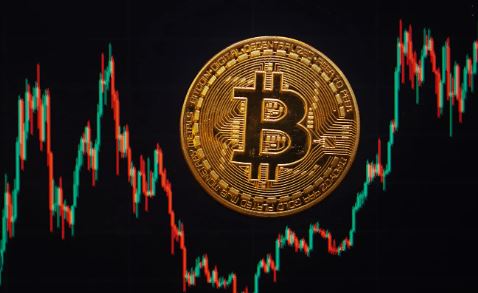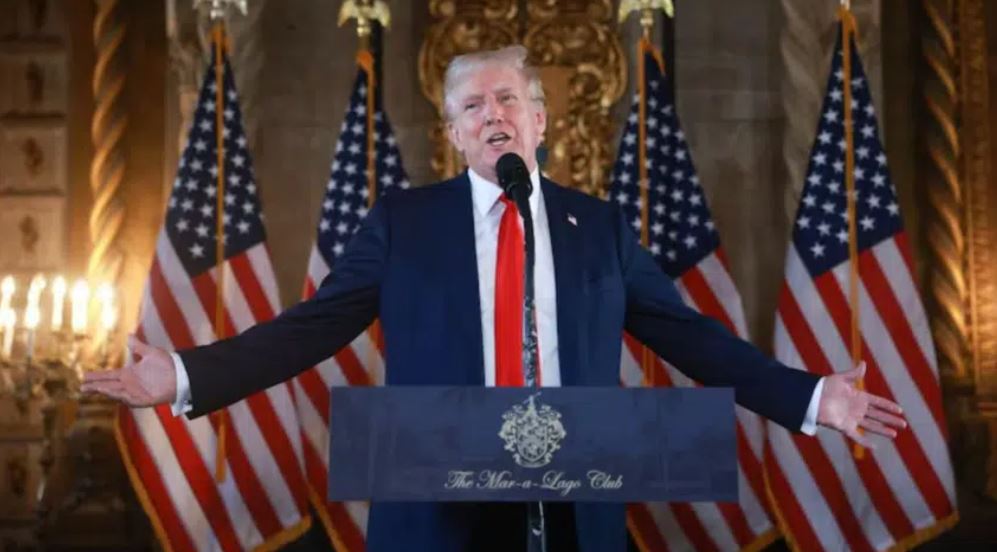Welcome to our continuous coverage of global business, financial markets, and economic developments.
Bitcoin, the most prominent cryptocurrency, reached a new all-time high just hours before Donald Trump’s inauguration in Washington, D.C. Meanwhile, the dollar has weakened.

The president-elect has vowed to establish a crypto-friendly administration and has ambitious plans to make the United States the “crypto capital of the planet” and develop a “strategic national bitcoin reserve.”
In a surprising move, Trump introduced his cryptocurrency, which faced a brief setback over the weekend following his wife’s launch of a meme coin. Despite initial volatility, Bitcoin surged by 4%, hitting a record $109,071 during Asian trading. Earlier losses saw it dip close to $100,000 after the Melania Trump-backed cryptocurrency entered the market.
In contrast, the dollar fell by 0.3% against a basket of major currencies. Both the pound and the euro rose by 0.4% against the greenback.
Asian markets responded positively, with Japan’s Nikkei up 1.17% and Hong Kong’s Hang Seng climbing 1.8%. In China, the Shanghai Composite gained 0.08%, while the Shenzhen exchange saw nearly a 1% rise.
Ipek Ozkardeskaya, a senior analyst at Swissquote Bank, noted:
“A significant portion of the Trump trade has already played out—small and mid-cap stocks rallied, energy and financial sectors outperformed, and cryptocurrencies soared. The first week under Trump may not bring many surprises, but it could still be eventful. Reports indicate Trump has prepared 100 executive orders to swiftly implement his agenda, including prioritizing crypto policies and incorporating key crypto market figures into his administration.”
Trump’s cryptocurrency, launched on the Solana blockchain, experienced a meteoric rise of up to 600% within three days, reaching a market capitalization of $15 billion. This surge also propelled Solana to a new record high.
Despite the initial optimism, Trump’s policies are expected to have mixed effects. His pro-growth and deregulation strategies could benefit the U.S. economy, but his tariff policies may drive inflation higher, potentially constraining the Federal Reserve’s ability to ease monetary policy. Rising debt levels could also lead to increased borrowing costs.
Trump has pledged to issue a flurry of executive orders on his first day, addressing issues such as illegal immigration and transgender rights, along with other conservative priorities.
Chris Turner, an analyst at ING, commented:
“Today, all eyes are on Donald Trump’s inauguration as the 47th president of the United States. Financial markets are anticipating a wave of executive orders on topics ranging from immigration to energy and trade. There is a slight market expectation for tariff actions against China and Mexico. Following months of speculation-driven gains, the dollar is now vulnerable to some selling pressure, although dips are likely to attract buyers.”
U.S. markets remain closed today for the Martin Luther King Jr. holiday, and the U.S. economic calendar is relatively quiet this week.
Meanwhile, global political and business leaders are gathering in Davos, Switzerland, for the annual World Economic Forum, which begins today.










